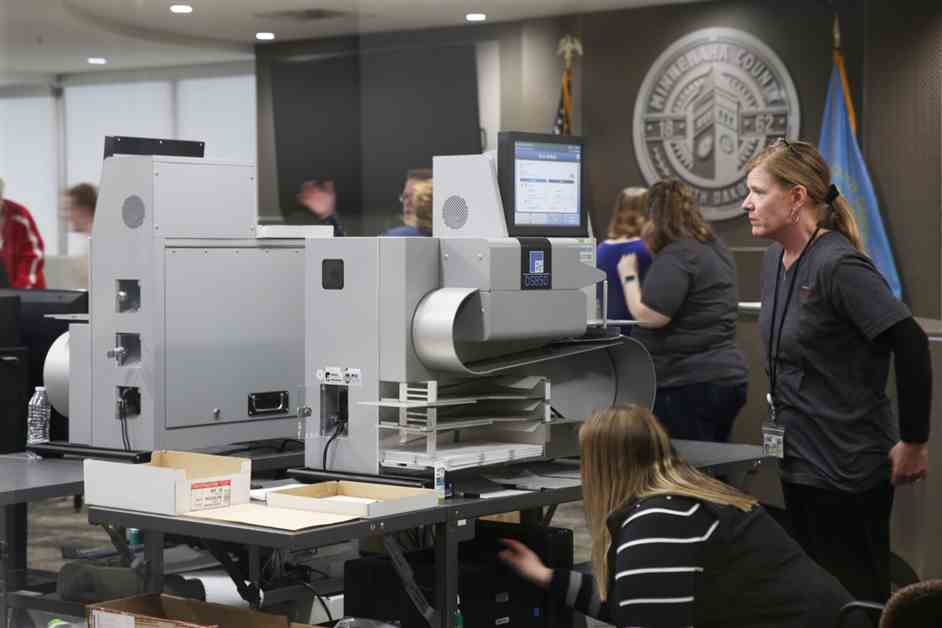Tabulator Bans in Three South Dakota Counties Put to Voter Decision
In a significant development, voters in Gregory, Haakon, and Tripp counties in South Dakota will have the opportunity to decide on the banning of tabulator machines in future elections. This decision marks the culmination of a grassroots movement led by the South Dakota Canvassing Group to transition the state’s elections to hand counting.
The proponents of the ban argue that tabulator machines lack transparency, violate state laws regarding ballot counting locations, and are more costly compared to hand counting. On the other hand, county auditors advocate for machine counting, citing its accuracy, transparency, and efficiency. They express concerns that a shift to hand counting could lead to increased expenses.
The South Dakota Canvassing Group, a nonprofit organization, remains steadfast in their advocacy for hand counting regardless of the election outcome. The movement gained momentum following the 2020 election and aims to address concerns surrounding election integrity and transparency.
Polling data reveals that while a majority of South Dakota voters accept the results of the 2020 presidential election, only a small percentage are highly confident in the electoral process. This lack of confidence has fueled calls for greater transparency in elections.
The debate over tabulator bans also highlights the importance of post-election audits and transparency measures in ensuring the integrity of the electoral process. While some counties have opted for hand counting audits exceeding the mandated 5%, others have emphasized the efficiency of machine tabulators.
The cost implications of hand counting versus machine counting remain a point of contention, with varying estimates provided by county auditors. Advocates for hand counting argue that the process can be cost-effective if implemented correctly, utilizing specific tally sheets and trained personnel.
Despite the legal and financial considerations, the push for hand counting elections underscores a broader societal need for increased oversight and engagement in the democratic process. South Dakota Canvassing Group vows to continue advocating for hand-counted elections and supporting legislative initiatives aligned with their principles.
As the residents of Gregory, Haakon, and Tripp counties head to the polls to make their decision, the outcome of the tabulator bans will have far-reaching implications on the future of election procedures in South Dakota. The debate encapsulates the ongoing dialogue surrounding election integrity and the role of technology in the electoral process.














